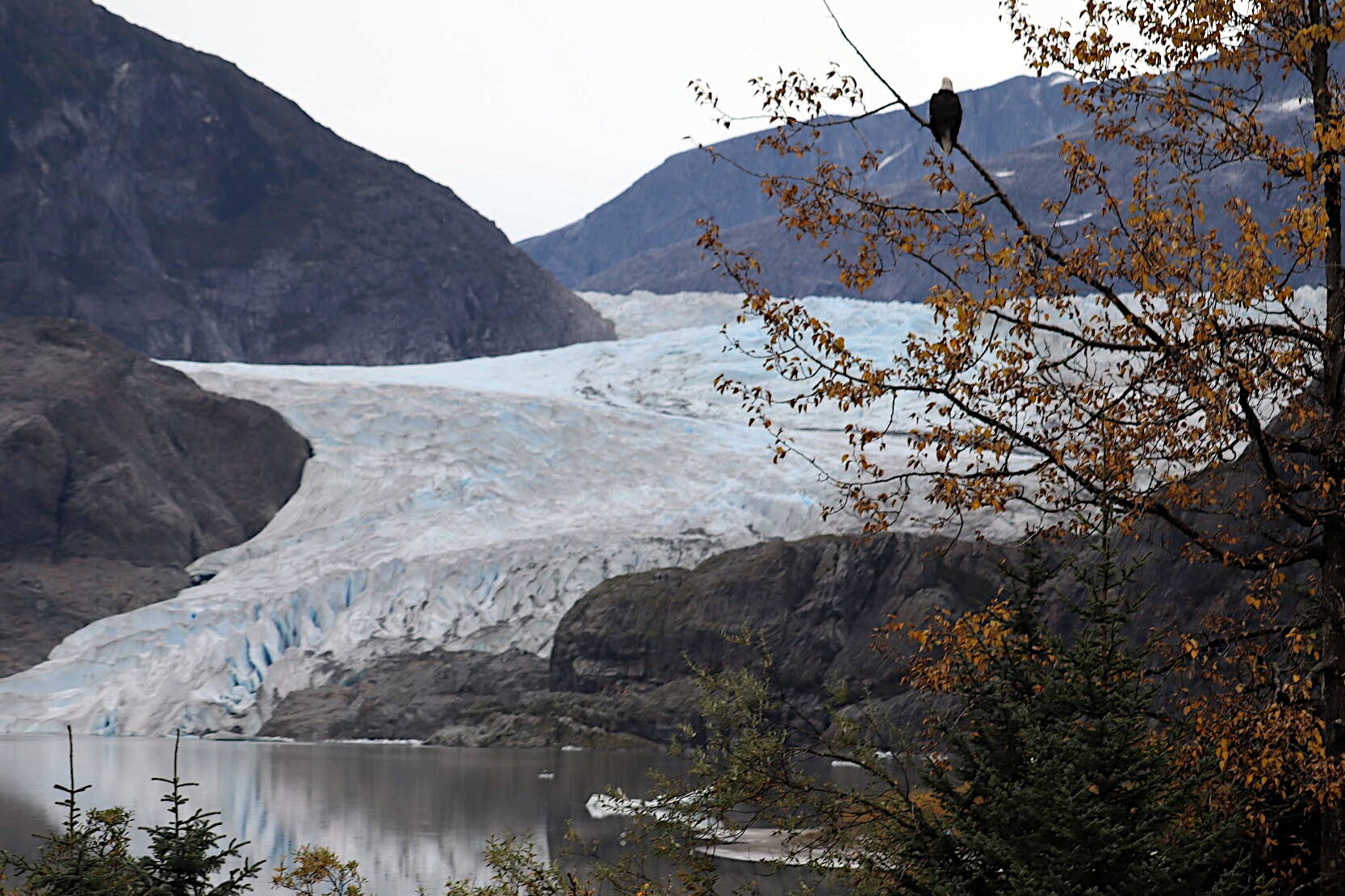I was born and raised in the Valley, where our family could see the Mendenhall Glacier from our driveway. The glacier hosted many of our weekly activities: from family hikes and bike rides, to middle school cross country practice and earth science class. We skied, skated, swam, and stumbled over the roots and rocks of the East Glacier Trail, usually in the rain. Like many, the majority of my life took place within a 3-mile radius of the glacier. The Mendenhall is not simply a nostalgic recreation site, but a beloved family member.
In regards to the proposed changes to the Mendenhall Glacier Recreation Area, most of the alternatives aside from Alternative 1 — No Action would result in increased effect on wildlife and vegetation, migratory birds, along with wetlands and aquatic habitat. Similarly, all subsequent alternatives result in increased greenhouse gas emissions, a proven link to climate change. Though the plans seek to address inevitable flooding events and rapid changes to the viewshed as a result of the glacier’s accelerating retreat, investing in 30-year infrastructure to chase the ice seems short-sighted and unwise. We do not know what the discontinuities of the future will hold, but for now, we can accept that the infrastructure in our midst, with maintenance and slight improvements, may be enough.
The Queen Charlotte goshawk makes her home in the high-value forest within the MGRA and is considered a sensitive species. While we might hope that a tourist will be so changed by an hour-long visit to the glacier that they return home to make a measurable difference in the state of our changing planet, this argument is falsely equivalent with the life of a goshawk. We cannot claim her habitat as ours to consume. Similarly, we can no longer deny that more visitors mean more direct negative impacts on the body of ice itself — including deposits of black carbon and dust from localized operations which absorb heat and melt the ice.
Where I live now, near Glacier National Park, we have seen a similar tension. Increased visitation rates resulted in the need for a ticketed entry system to reduce congestion, improve overall experience, and protect the land. For comparison, Glacier National Park is over 200 times the area of the MGRA and yet only has four times the visitors. While a national park prioritizes preservation, a national forest, like the MGRA, has the more challenging job of weighing intersecting interests. However, there is a call to redesignate the Tongass a national park, which could have multiple benefits to habitat, including protecting the rainforest as a huge carbon store, not to mention bolstering the local economy and limiting commercial tourism.
As Robin Wall Kimmerer writes, “the gifts of the earth are to be shared, but gifts are not limitless.” In the end, I favor limitation of commercial visitation as the only sensible response to overcrowding and poor experience. Thankfully, the Juneau Assembly and Mayor Beth Weldon recently agreed upon negotiating cruise ship limits. This is commendable and excites me.
The gifts of the glacier are many, some of which we may fully come to appreciate in the glacier’s leaving: from the great blue herons occasionally spotted on Zig Zag Pond, to increased mountain goats at lower elevations. In this way, the Mendenhall Glacier Recreation Area emerges as a potential site of repair for humans and non-humans in a changing landscape. It will take insiders and outsiders both to shift the narrative away from commercial consumption toward an ethic of care.
Rather than swarm the glacier and risk greater ecological harm, we may choose to hospice the glacier, a word meaning to provide hospitality and a place of protection for the weary. From this standpoint, we might ask: what might the glacier say about its own sovereignty and future? Dare I propose an eighth alternative of refugium: where human and non-human species alike may survive and celebrate these difficult times with the gifts of glaciation.
As stewards of this special place, we are responsible for honorable action, that we are accountable to our grandchildren as well as generations of returning Arctic terns, the true and equal inheritors of this place.
• Sarah Aronson is a writer and climate-aware therapist, born and raised in the Mendenhall Valley, now living in Montana. Columns, My Turns and Letters to the Editor represent the view of the author, not the view of the Juneau Empire. Have something to say? Here’s how to submit a My Turn or letter.

